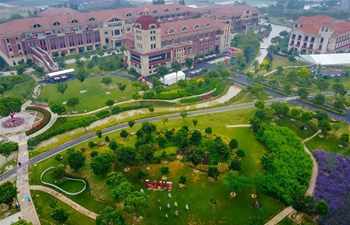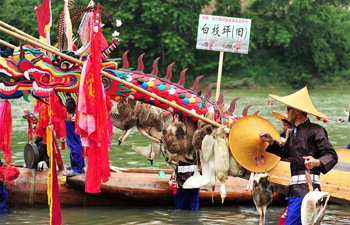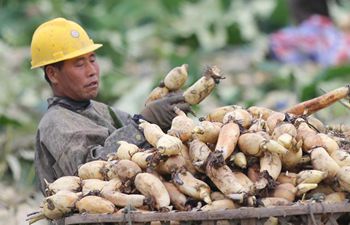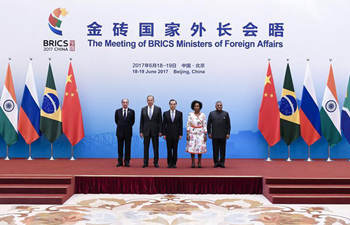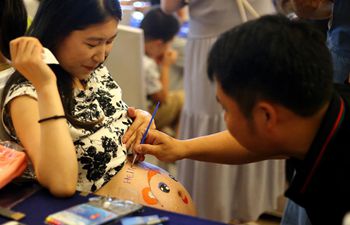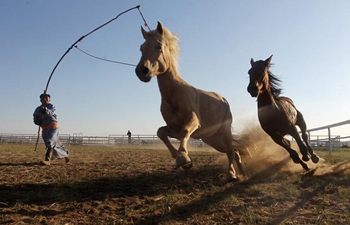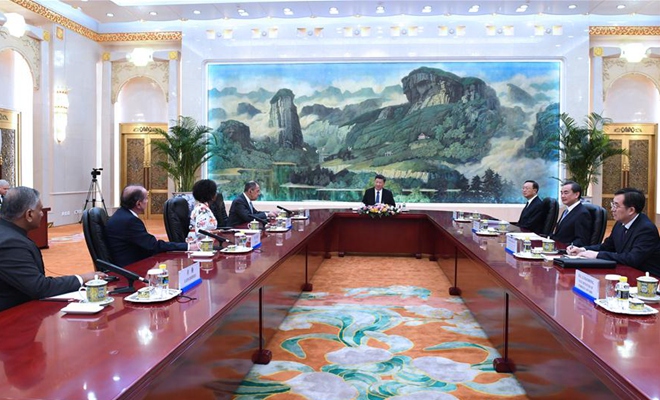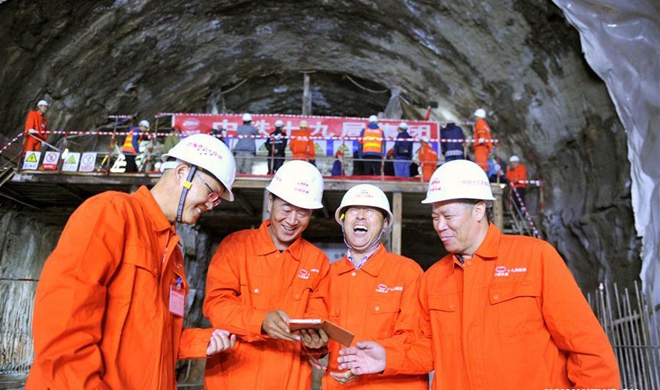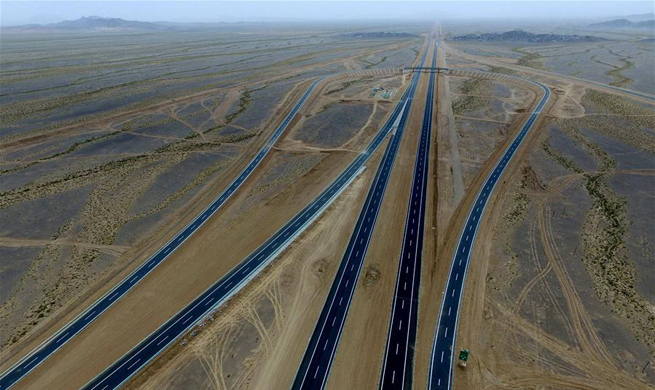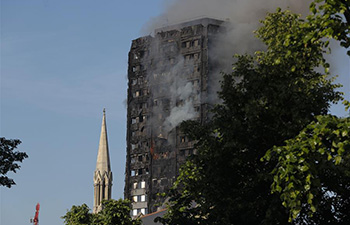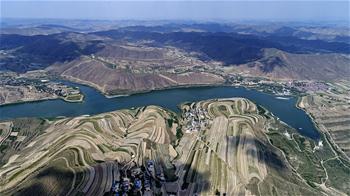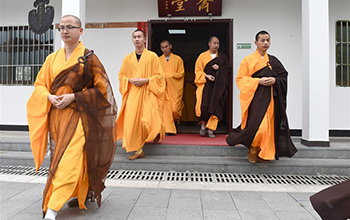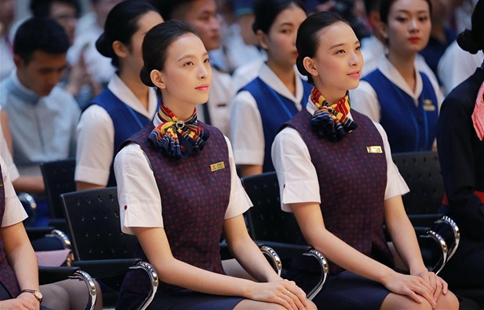by Xinhua writer Wu Zhiqiang
NAIROBI, June 19 (Xinhua) -- My journey to Rwanda began well before my arrival in the country, online.
I filed my application on the website of the Directorate General of Immigration and Emigration (DGIE) on a Tuesday, and received almost immediate confirmation that it would be processed within three days.
By Friday evening, however, the tracking page still said the status of my application was pending.
I was forced to put off my flight scheduled for Saturday.
Meanwhile, I also sought help from the live-chat section on Irembo.com, the country's e-government portal. Irembo means "gateway" in the local Kinyarwanda language.
My helper online, called Neza, told me to "kindly contact" the immigration authorities at the three email addresses listed on the DGIE website.
It was on the seventh day after my submission that a notice of approval was emailed to me.
My trip to Rwanda was off to a somewhat disappointing start, or at least not as smooth as initially expected.
After a full nine days in Rwanda, however, I have come to realize that my experience with the online visa application process was just a minor hiccup as the country is striving to leave behind its tragic past.
I have also come to appreciate the optimism and confidence in the country's future among many Rwandans and foreigners.
------
Twenty-three years ago, Rwanda experienced one of the darkest chapters in human history. More than 1 million Tutsis and moderate Hutus were massacred within 100 days.
"Rwanda is a country of hills, mountains, forests, laughing children, markets of busy people, drummers, dancers, artisans and craftsman," reads a plaque at the Kigali Genocide Memorial Center.
"We manage to squeeze thousands of hills and eight million people into our 26,338 square kilometers. Our land is rich and fertile, the climate pleasant.
"This has been our home for centuries. We are one people. We speak one language. We have one history.
"In recent times, though, genocide has cast a dark shadow over our lives and torn us apart.
"This chapter is a bitter part of our lives, but one we must remember for those we lost, and for the sake of the future."
Wreaths could be seen at many of the graves at the memorial.
"Interred here are the remains of over two hundred fifty thousand individuals," reads a plaque. "Please respect the sanctity of their final resting place."
Among the photos of genocide victims at the memorial center, located in northern Gisozi, in the Gasabo district of the capital, was one of a teenage girl sitting before a computer monitor.
That monitor, of the cathode ray tube (CRT) type, was similar to that of the first computer I owned, in 1994, about the same time when the Rwandan genocide was unfolding.
----
Fidele Ndayisaba, executive secretary of the National Unity and Reconciliation Commission (NURC), was himself a survivor. Some of his brothers were killed in the genocide.
"I witnessed what had happened during the terrible tragedy," he said. "It's not something that I learned from outside."
"It was genocide of proximity... There were people who killed their neighbors, colleagues, friends or schoolmates. There were even people who killed their spouses, their own children, their in-laws, only because they were called Tutsi."
Before being appointed as head of the NURC, a government agency answering directly to President Paul Kagame, Ndayisaba had served as governor of the Southern Province and mayor of the capital, Kigali, and experienced the reconciliation efforts first-hand.
Rwanda has since adopted a policy of single national identity. Citizens are registered simply as Rwandans, with no ethnic or tribal references on their identification papers.
Under a campaign called "Ndi Umunyarwanda," or "I am Rwandan," the government seeks to recover the unity ingrained in its culture and to root out what it describes as divisionism and genocide ideology pursued by colonial rulers and the regimes of the first two republics.
"'Ndi Umunyarwanda' means putting the Rwandan identity above all, above all differences," Ndayisaba said. "It dignifies Rwandans."
"It helps in healing from those different wounds, from the shame of Rwandans who have lost their dignity, those who committed genocide, those who feel ashamed because of being relatives of killers, and survivors who have been victims of what happened."
While stressing the achievements made in the unity and reconciliation efforts, Ndayisaba did not shirk from the challenges ahead and the enormity of the long process of recovery.
A 2015 NURC report, Rwanda Reconciliation Barometer, put the country's reconciliation status at 92.5 percent, up from 82.3 percent of five years before.
Ndayisaba attributed the "remarkable progress" achieved by the country in the past two decades to the vision and leadership of President Kagame, who enjoys immense popularity among Rwandans.
"I see a very bright future for this country," he said.
----
Ndayisaba's optimism is shared by the Chinese Ambassador to Rwanda, Rao Hongwei.
"A country that gives top priority to education has a great future," Rao said.
Rwanda now offers free universal primary and secondary education, emerging as "one of the top-performing countries in sub-Saharan Africa in education," according to the United Nations Educational, Scientific and Cultural Organization (UNESCO).
The country's Education Ministry put the net enrollment rate at 97 percent.
"For us, education is the No. 1 issue," Finance and Economic Planning Minister Claver Gatete told us in an interview shortly before presenting the 2017-2018 budget to parliament, which he said would reflect the country's attention to education.
The number of universities has increased significantly, with education focusing more on science and technology and on technical and vocational training, Gatete said.
Candy Ma, chief executive officer of C&H, a garment business with factories in Kenya, Ethiopia, and Rwanda, said she was "struck by the Rwandan people's eagerness to learn."
"We want to help them make the impossible possible," said Ma, who said she has also been moved by the attention and assistance of the government.
Ma was a member of the Rwandan delegation when President Kagame visited China last March.
"We may face difficulties such as transport costs that are twice or even three times higher than other places, but we'll try to cover that with better management and optimized operations.
"I have been in Africa for many years and have grown fond of this continent," Ma said. "We really want to help Rwanda's endeavor to industrialize."
C&H plans to register its own brand name to offer simple and affordable products to African consumers, said Ma, whose business card highlights "Made in Africa."
Anne An manages C&H's Rwanda plants in Kigali. She is impressed by not only the local workers' diligence, but also their sense of pride and dignity.
Many of them would voluntarily come to work as early as five in the morning, or stay well after the usual working hours, to master new skills as quickly as possible.
"When their own workload is fulfilled, some would offer to help fellow workers on the production line, or even colleagues on different lines," An said.
An said her plants now employ around 800 local workers, and an additional 1,500 will be hired as C&H builds new plants and opens a training school with the Workforce Development Agency (WDA).
C&H Rwanda has been in operation for about two years. Initially, its headworkers were selected mostly because of their good command of English to facilitate communication with managers and trainers.
As the garment factory's focus shifts more toward training and actual production, some of the headworkers were reassigned to posts as ordinary workers, as command of technical skills and peer satisfaction take precedent in choosing group leaders.
Almost all of those reassigned to lower ranks chose to leave, despite the fact that the pay was the same and they needed the money, An said, who attributed their departure to the Rwandans' impressive pride.
Rwanda is the 10th African country that John Gao has visited. Only two weeks in Kigali, the Chinese hair products merchant is already determined to stay and do business here.
Before his arrival in Rwanda, Gao, 51, spent three days in another African country, studying the local market. On one occasion, he was harassed by several policemen and almost had to pay hundreds of dollars to get out of trouble.
However, Gao said, he feels welcomed in Rwanda.
At the Rwanda Development Board, a clerk and a technician helped Gao register his firm. He arrived there at about 10 a.m. and was told everything would be ready at 3:30 p.m.
Bundi E. Walker is a co-founder of Afrionline Izyo Ltd., which offers taxi and delivery services in Rwanda. The taxi service, originally known as 250Taxi, after the country's telephone code, was later rebranded as AfriTaxi.
Mobile applications for both AfriTaxi and its sister delivery service, AfriDelivery, are available on IOS and Android app stores.
Walker, a 30-year-old Kenyan national, and his colleagues are still fleshing out AfriTaxi services and testing AfriDelivery operations.
Under the current law, Walker said, private car owners are not allowed to engage in profit-making car-sharing services in Rwanda, so his firm has recruited around 100 traditional taxi drivers.
AfriTaxi Rwanda is training its drivers in the use of smartphones and its proprietary apps and is in negotiations with hardware vendors. Representatives of Tecno, a Chinese mobile phone manufacturer, were among those Walker had talked to.
Walker is also very positive about the future of his business and of Rwanda.
"The sustained growth of 8 percent is an indication that the country is on a good trajectory," he said. "For businesses, you are guaranteed to grow."
While its operations are just fledgling in Rwanda, Afrionline is eyeing the wider African continent. Some of its services are also available in Uganda. Its main website lists a total of 11 countries for business coverage, nine of which have contact numbers.
-----
Christian Benimana has a very international background.
He was born in Rwanda, earned his bachelor's degree at the School of Architecture and Urban Planning of Tongji University in Shanghai and spent 10 years in China, where he met and married his wife and had their first child, a daughter. His father lives with his two sisters in Cotonou, Benin; his brother is a resident of Austin, Texas, the United States. He now lives with his mother, his wife, a Zambian, and two children in Kigali. His second child, a boy, was born two years ago in the Rwandan capital.
Benimana, 35, is the Rwanda programs director of MASS Design Group, which also has offices in Boston, Massachusetts.
As leader of the African Design Center, a field-based apprenticeship, Benimana's responsibilities cover the whole of Africa.
The continental initiative, he said, now has 11 fellows, from Rwanda, South Africa, Malawi, Kenya, Uganda, South Sudan, Cote d'Ivoire and Ghana.
"For some time now, architecture has only been regarded as products that only few can afford, can pursue," Benimana said. "It should not be limited to a few people, and when it's used for everybody, it needs to be used right, because if it doesn't, it makes damages, very expensive and long-lasting damages."
"Every architect can do great architecture in a vacuum. But when it's applied to real life, with real clients, with real sites, with real community challenges, with limited budgets, then it becomes a challenge."
On the future of Africa, Benimana appeared more circumspect.
"Optimistically, I see the continent being the new frontier for innovation, where new solutions come up and people test them, eventually being in the front of inventing new technological solutions and new ways of living.
"Pessimistically, I see it just becomes chaos, if not thought or done properly; the ecosystems cannot sustain the populations on them," he said. "That's the worst that can happen."
-----
Looking ahead, the landlocked Rwanda still has a lot of hurdles to clear. It has yet to graduate from the United Nations' list of least developed countries; 17 percent of its proposed 2017-2018 budget will be funded by donors.
In some parts of Kigali, sometimes one can still spot beggars and youngsters peddling pirated DVDs.
Along the road from the capital to Eastern Province, many locals can be seen carrying yellow containers of water by hand or on rusty bicycles, an indication of inadequate water supply.
But with a visionary leadership, a government with zero tolerance towards corruption and a population bent on shaking off its genocidal past, Rwanda is on the right track to emerge as a shining example of a rising Africa. Enditem (Lyu Tianran contributed to the report.)




